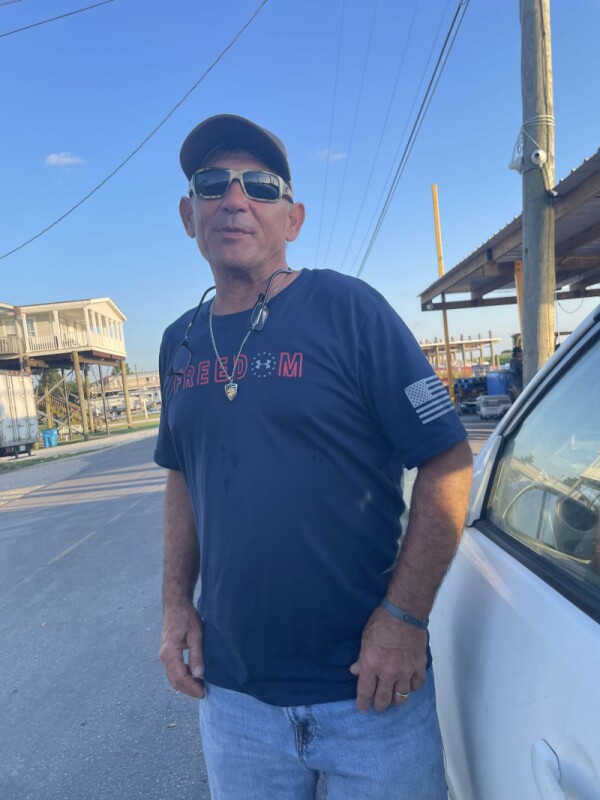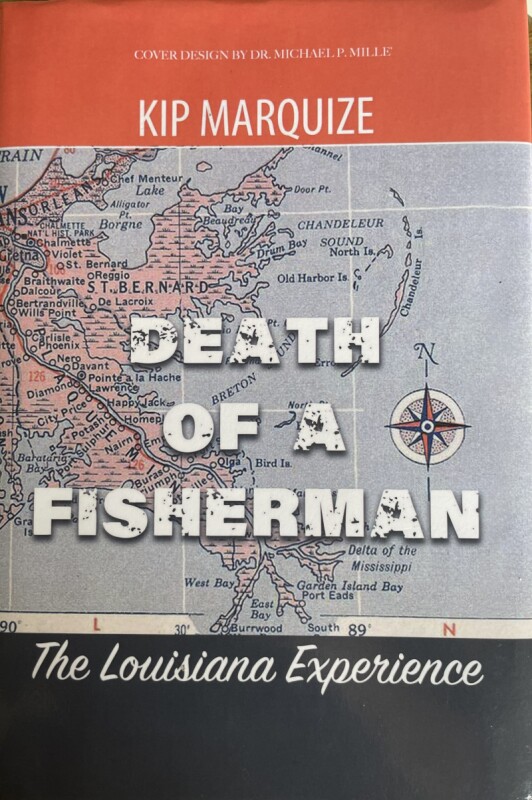Death of a Fisherman
By Kip Marquize
Having survived many difficulties, the economic pressure that Louisiana fishermen face in 2023 may be too much.
Would you call Kip Marquize’s book "Death of a Fisherman" literature? Nah, that would not be fair to literature or Marquize. Call it an authentic voice speaking raw truth. If you’re looking for polished prose, keep looking. "Death of a Fisherman" is like home cooking in a book, and you can taste the love in it.
Marquize fell in love with fishing at age 15, after some near-death experiences out shrimping with his brother. After nearly sinking and loosing most of their catch, the two teenagers managed to sell a basket of shrimp for a few bucks and that was all it took for Kip to realize he could make a life from fishing. How many of us know this story? All fishermen have their version.
Although it’s titled "Death of a Fisherman," the book is mostly about staying alive. From his earliest brushes with disaster, Marquise tells the story of a lifetime spent at death’s edge –corporeal or financial – always finding some blessed deliverance.
The book opens in August 2005 with a falling barometer and warnings of a hurricane. Told from the waterside, Marquize runs his 32-foot vessel to the west as the wind picks up, and finds a little gunk hole to moor it in. Miraculously, his boat survives the massive surge of Katrina, that wiped the much of the Louisiana Delta clean. Amidst the devastation, Marquize and a few others manage to catch and sell shrimp.
That’s it. Adapting, getting lucky, finding niches and markets – everything from crab to speckled trout – Marquize figures out how to turn a dollar and stay on the water.
The BP oil well explosion that killed eleven men and poisoned the Gulf of Mexico in 2010 took its toll on fisheries, but Marquize and others found work in the cleanup, and many bought new boats with pay offs from the negligent company. The Gulf rebounded much faster than expected and stocks of shrimp, crab, and red snapper appear healthy. Things should be looking up for the fishermen of the lower delta, but a flood of imports of aquaculture shrimp are driving prices to the point that for most their catch doesn’t cover the cost of the trip.
Standing at the end of the road, literally, in the little fishing port of Delacroix, La., Marquize hands me a copy of his book. “We got to get the word out,” he says. “Do what you can.”
Don’t buy this book for your favorite fisherman, buy it for your legislators. Buy it for the people who go to the fish market chasing a low price instead of a connection with the sea that values the lives of the creatures that feed us, and the edgy lives of the people who catch them. – Paul Molyneaux








